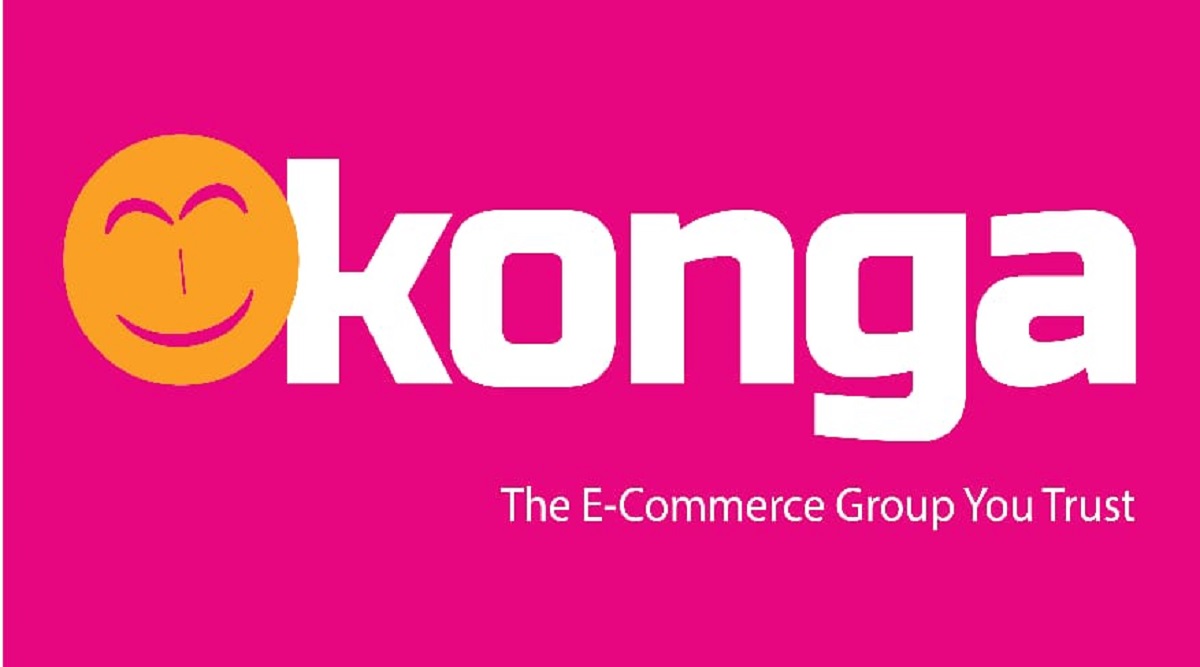E-Business
Oracle Rates Mobile Apps as New Face of Businesses

A new research from Oracle reveals that nearly 55% of millennials say a poor mobile app experience would make them less likely to use a company’s products or services.
According to the global report, Millennials and mobility: how businesses can tap into the app generation, 39% of millennials would also be less likely to recommend a company’s products or services to others following a poor app experience, and 27% admit it would even give them a negative view of that organization’s products or services altogether.
These findings make it clear that if companies cannot provide current and prospective customers with engaging mobile app experience that also accurately reflects the values of their brand, they risk alienating the millennial generation and seeing their competition pull ahead with a more convincing mobile offering.
Suhas Uliyar, vice president, Mobile Strategy and Product Management at Oracle, said: “An engaging and personalized user experience has become the new weapon in the battle to attract and retain millennial customers. Businesses that cannot add value for customers with a more convenient, functional, and relevant mobile experience have little chance of coming out on top.”
The report also shows that millennials are turned off by unsolicited communications in the form of push-notifications that aren’t relevant to their individual needs, but are happy to receive support in the form of value-added communications from businesses.
Seventy-three (73) percent “like” the ability to purchase a company’s product or service using a mobile app.
Likewise, 71% like the ability to manage billing for services, and 65% like being able to flag issues or complaints to a business via a mobile app. That said, more than half (56%) would prefer not to receive push-notifications.
The same percentage rarely act on the push-notifications they do receive, even though nearly 50% admit these are personalized to them.
To this point, Suhas Uliyar added: “The ability to manage bills or flag service issues to a company via a mobile app implies an agreed-upon relationship between a customer and brand or service provider. The story is completely different in the case of push-notifications. Organizations will need to provide app-based services that deftly tread the line between helpfulness and overbearingness if they want to tap into young peoples’ affinity for using mobile and tablet apps without alienating them.”
A region-specific breakdown of the survey reveals that young people in APAC are miles ahead in their app use across the board, most notably so when it comes to apps for work and more “serious” functions. Nearly three times as many millennials in APAC than in EMEA rate their work apps as absolute must-haves, with a similar ratio holding true for security apps. In addition, while millennials around the world have each downloaded between 20-25 mobile apps on average, 40% of those in APAC have paid for as many as five of these, compared with roughly 25% of those in EMEA and North America.
For millennials in APAC, mobile apps are not just “nice-to-haves”; they are necessary resources in their day-to-day lives.
Young people in this region are constantly on the look-out for new innovative apps and, encouragingly for businesses, are willing to pay for applications that deliver a valuable experience.
On a global scale, the research points to a telling discrepancy between smartphone and tablet app use among millennials.
While young people use tablets on a considerable scale, smartphones remain their device of choice for accessing mobile apps.
For example, sixty-one (61) percent of millennials have uploaded media content using a smartphone app, nearly twice as many as have done so with a tablet (35%). When it comes to transferring money to a friend, 48% have used a smartphone app to do so, versus 22% that resorted to tablet apps.
“There clearly remains much room for innovation when it comes to tablet apps, as well as apps for larger form phablets, and companies that answer the call will be well-placed to capitalize on a still maturing market. However, apps for smartphones and tablets should not be developed independently from each other. Many millennials own multiple connected devices, and businesses will need to deliver a consistent, high-quality app experience across all of these if they want to add value for their customers”, said Suhas Uliyar.
Oracle engineers hardware and software to work together in the cloud and in your data center.
E-Business
Konga Unveils ‘All in All, Everything ×2’ Campaign, Offering Month-Long Discounts Across Product Categories

Konga, Nigeria’s leading composite e-commerce giant, has announced the launch of its highly anticipated ‘All in All, Everything ×2 – Category Month’ campaign.. This month-long shopping festival, running from September 1 to September 31, offers customers unprecedented discounts across a vast range of products.

The campaign is strategically designed to empower households and businesses by providing a golden opportunity to enjoy massive savings from globally renowned brands across diverse product categories.
The core of the “Category Month” campaign lies in its dynamic, week-by-week approach. Each week, Konga will spotlight a specific category, delivering targeted discounts that excite and engage shoppers.. For instance, the first week is set to focus on the Home and Kitchen category, presenting customers with a chance to upgrade their living spaces and culinary tools at unbeatable prices. This phased approach allows shoppers to plan purchases and shop intentionally throughout the month.
This strategic campaign is made possible through robust partnerships with top brands from around the world. These collaborations enable Konga to not only offer substantial price cuts but also guarantee the authenticity and quality that shoppers have come to expect from Konga. The synergy between Konga’s expansive platform and these global powerhouses ensures exceptional value while reinforcing Konga’s reputation as a trusted source for premium goods at affordable prices.
Over the course of the month, shoppers will enjoy exciting discounts across categories, including Home and Kitchen, Electronics, BHPC/Konga Fashion, Power and Automobile, Phones and Tablets, Computing and Accessories, Drinks and Groceries, and Baby, Kids and Toys. Konga’s “Category Month” has something for everyone.
In addition to the incredible deals, the campaign is bolstered by Konga’s efficient logistics infrastructure, offering customers unparalleled convenience. Customers in select locations can leverage KongaNow, the company’s express delivery service, with guaranteed delivery within one to six hours on eligible items. This fast and reliable delivery ensures shoppers can enjoy their purchases almost immediately.
Industry watchers have hailed Konga’s innovative campaigns as a catalyst for driving consumer confidence in online shopping, while also giving partner brands unmatched visibility.. The Category Month campaign further strengthens Konga’s commitment to enabling a vibrant digital marketplace where value, affordability, and trust intersect seamlessly.
The Category Month campaign is a strategic effort to enrich the lives of its customers by making high-quality products more accessible. Customers are encouraged to visit the Konga website to explore all the offers and take full advantage of ‘All in All, Everything ×2 – Category Month’.
E-Business
Firm Warns of Phishing Through Fake University Login Pages Targeting Academia

As the new international academic year begins, Kaspersky has detected a wave of phishing webpages targeting college and university students as well as professors. Attackers are deploying fake login portals that mimic official university websites, tricking users into entering credentials which can lead to stolen data or a complete loss of access to their university accounts.

Links to these phishing portals are either distributed in emails or appear in web search results when looking for academic institutions’ login pages.
The fraudulent portals closely replicate the branding and design of legitimate university systems. Students of multiple academic institutions across different regions have been targeted, including in the Middle East, Turkiye and Africa (META) region.
If users enter their credentials on these fake academic portals, cybercriminals can steal sensitive data such as login details which grant access to university accounts containing personal information, academic records, and financial data. Attackers may also change the passwords, blocking students and professors from critical resources like course materials, email, or payment systems. Compromised accounts can be used to send phishing emails to peers, spreading the attack within university networks.
“Colleges and universities are vulnerable due to their reliance on digital platforms and the high volume of users accessing systems during the international back-to-school rush.
These fake login portals can appear convincing, exploiting the trust that students and professors place in their university systems. We’re urging the academic community to stay vigilant and double check the web addresses of their educational institutions’ login pages to avoid losing data,” commented Olga Altukhova, Senior Web Content Analyst at Kaspersky.
To stay safe against education fraud, Kaspersky recommends the following:
- Enable multi-factor authentication (MFA): Activate MFA wherever possible, adding an extra layer of security to your online accounts. Use a reliable password manager that doesn’t just store your passwords but also generates one-time passwords for 2FA automatically.
- Use a reliable security solution for comprehensive protection from a wide range of threats, such as Kaspersky Premium.
- Stay skeptical: Exercise caution when encountering “too good to be true” offers, especially if they require payments or personal information upfront.
- Verify the source: Thoroughly research any scholarships, giveaways, or offers that come your way. Look for official contact details and confirm legitimacy before taking any action.
- Secure personal information: Avoid sharing sensitive data online unless you’re absolutely certain about the legitimacy of the request.
- Use trusted sources: Stick to official school websites, recognised scholarship platforms, and reputable retailers when making payments or providing personal information.
E-Business
FG Shuts Down over 13.5m Social Media Accounts for Alleged Policy Violations

Federal government has confirmed the closure of 13,597,057 social media accounts over harmful content and breaches of the country’s digital code of practice.

The figure was contained in the Code of Practice 2024 Compliance Report, submitted by major technology firms including Google, Microsoft, and TikTok.
The report outlined efforts made by online platforms to curb offensive content and strengthen user protection.
The compliance framework, introduced in 2022 and jointly enforced by the Nigerian Communications Commission (NCC), the National Information Technology Development Agency (NITDA), and the National Broadcasting Commission (NBC), required platforms to address user complaints and remove content that violates community guidelines or national regulations.
According to the latest report, social media platforms collectively deleted 58,909,112 posts flagged as offensive within the year.
Authorities also recorded 754,629 user complaints, while 420,439 pieces of content were reinstated following successful appeals.
In a statement issued by Hadiza Umar, spokesperson, NITDA, commended global platforms for what she described as “continued compliance” with Nigeria’s Code of Practice. She noted that the submission of the annual reports demonstrates a shared commitment to creating a safer digital environment.
“The compliance reports provide valuable insights into the platforms’ efforts to address user safety concerns in line with the Code of Practice and their community guidelines,” Umar said.
“We remain committed to working with industry players, civil society, and regulatory partners to strengthen user safety measures, enhance digital literacy, and promote trust and transparency in Nigeria’s digital ecosystem.”
The government said the monitoring exercise underscores its drive to ensure that Nigeria’s growing digital space remains secure, responsible, and free from harmful content.

 Telecom2 days ago
Telecom2 days agoMTN Nigeria Empowers over 3,000 Customers with ₦579m in Mega Billion Promo

 News2 days ago
News2 days agoSuri’s Memoir Sparks Visionary Dialogue with Zimbabwean Ministers on Africa’s Future

 E-Financial2 days ago
E-Financial2 days agoUnion Bank of Nigeria Completes Merger with Titan Trust Bank

 E-Financial2 days ago
E-Financial2 days agoAMMBAN Faults CBN’s 60-day Deadline on PoS Geo-Tagging

 News2 days ago
News2 days agoAdlantique Named Nigeria’s Best in Digital Marketing, Content Creativity @ 2025 Beacon of ICT Awards

 General News2 days ago
General News2 days agoAirtel Africa Foundation Presents Nigerian Students with Tech Scholarships

 General News2 days ago
General News2 days agoCAC Postpones New Fee Implementation

 Telecom2 days ago
Telecom2 days agoSwitch Solutions to Lead Cybersecurity Innovation @GITEX Nigeria 2025















